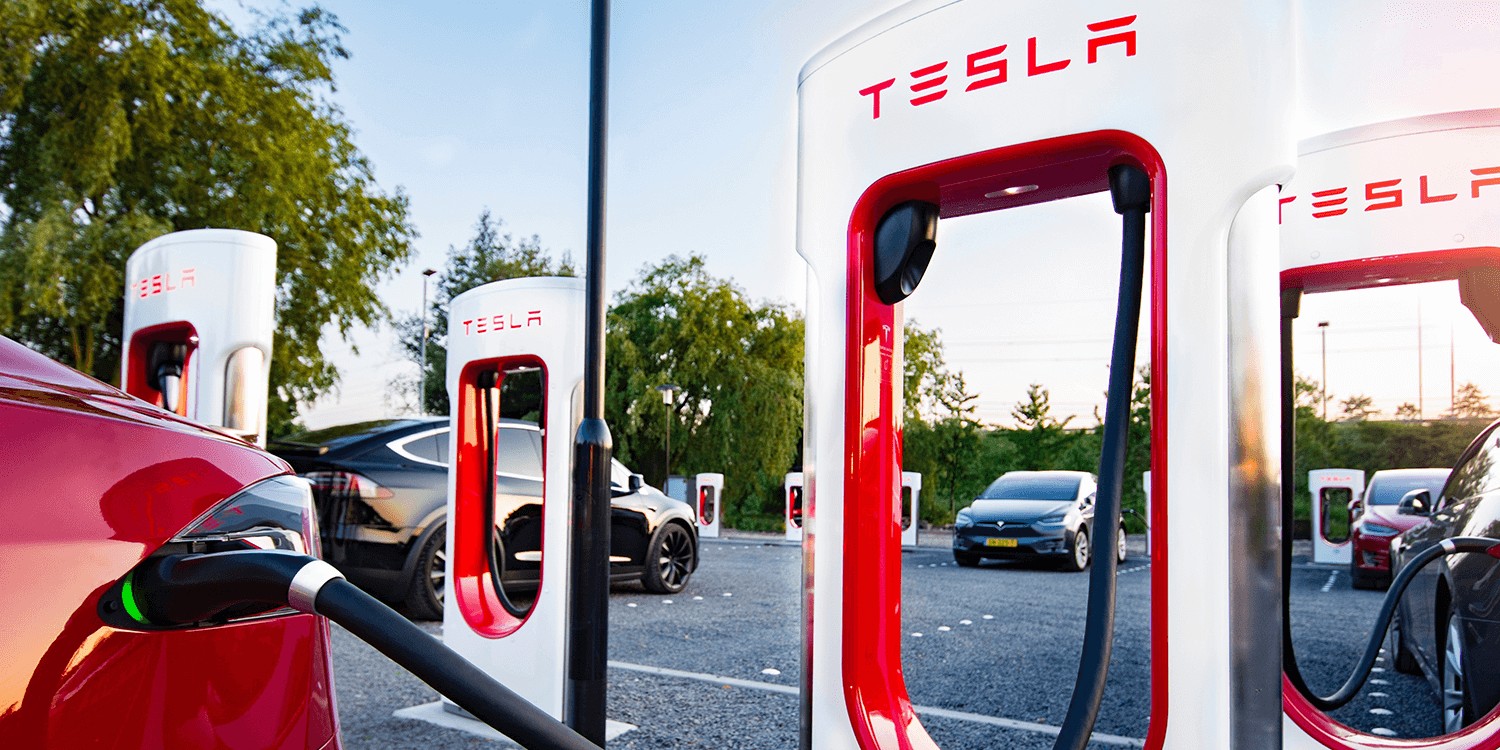
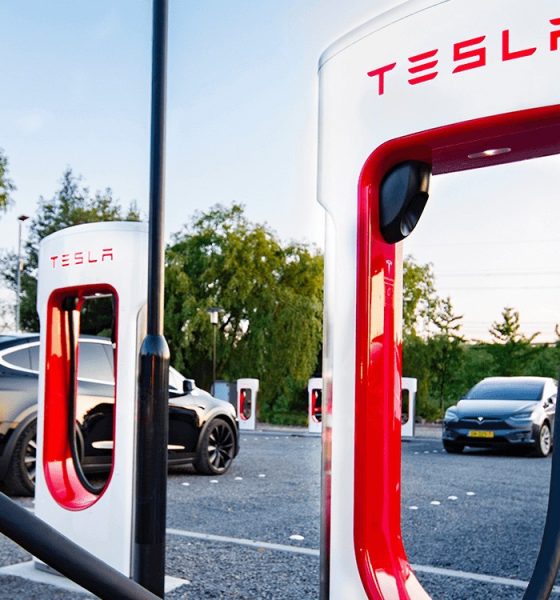
News
Tesla owners set to win legislative protection from Supercharger blocking in CO
The Colorado electric vehicle (EV) community is set to benefit from legislation that will fine gas-powered violators for parking in EV charging spaces. The penalty prescribed is $150 plus a $32 surcharge.
The bill, HB19-1298, recently passed the state congressional house and corresponding senate committee, and it now awaits a final vote in the Senate before signature by Colorado Governor Jared Polis. Once enacted, the Centennial State will join ten other states with similar laws, many of them with substantial financial penalties as well.
The legislative charge in Colorado is being led by local Tesla owners feeling especially impacted by the blocking incidents, nicknamed “ICEing” in reference to the internal combustion engines of the violators. Tesla owner, YouTuber, and President of the Denver Tesla Club, Sean Mitchell, took the community’s frustration with electric vehicle owners’ lack of options for dealing with ICEing directly to his local representatives and has been rallying for the case ever since. His efforts were backed by Margaret-Ann Leavitt, vice president of Denver-based National Car Charging, and both advocates were recently featured in a local paper highlighting both their cause and their coming legal victory.
Internet forums and social media are full of sightings where Superchargers are being blocked by ICE vehicles, some even maliciously as a statement against zero emissions cars overall. Given the benefit of the doubt, however, most instances of gas-powered vehicles blocking EV chargers are a matter of location, convenience, and in places without means of enforcement, unimpeded if a driver chooses to ignore the purpose of a charging location.
The legislation in Colorado doesn’t come without detractors. “This is a solution looking for a problem,” Tim Jackson, CEO of the Colorado Automobile Dealers Association (CADA) representing 260 dealers in the state, was quoted as saying in The Colorado Sun article featuring the bill. He cited the EV chargers located in the CADA parking lot, noting that he could “count on one hand” the number of times an electric car wasn’t able to use them due to ICEing. He failed to mention, though, that the chargers on CADA’s property ban Tesla vehicles specifically from using them, which does not bode well for the association’s supposed neutrality on the issue.
Another argument made by an opposing legislator was the preference EVs would be given over other cars needing special parking treatment such as large vehicles. When smaller vehicles fill those spots despite reservation signs, the larger cars’ options are limited or eliminated from the immediate area. This comparison may be relevant when only focused on the issue of reserved parking space violations, but considering the miles-long distances between Supercharger/EV charger locations vs. locations for big cars to park, the larger vehicle issue doesn’t seem to align with the purpose of the bill at hand.
Tesla itself is aware of the ICEing problem and has recently been spotted testing its own countermeasures. In Taiwan, a member of the Tesla owner community posted a video of a ground lock that used camera-based identification for deactivation to ensure only Tesla vehicles could park in the space without damage. Tesla China was also seen testing a similar device using QR codes for deactivation.
Overall, the growing presence of electric vehicles throughout the US will continue to bring changes to the existing transportation industry as it adapts to their particular needs. As seen in this recent example in Colorado, advocacy may be necessary in cases where local government isn’t immediately aware of the changes needed, but the effort can prove worthwhile.

News
Tesla’s Apple CarPlay ambitions are not dead, they’re still in the works
For what it’s worth, as a Tesla owner, I don’t particularly see the need for CarPlay, as I have found the in-car system that the company has developed to be superior. However, many people are in love with CarPlay simply because, when it’s in a car that is capable, it is really great.
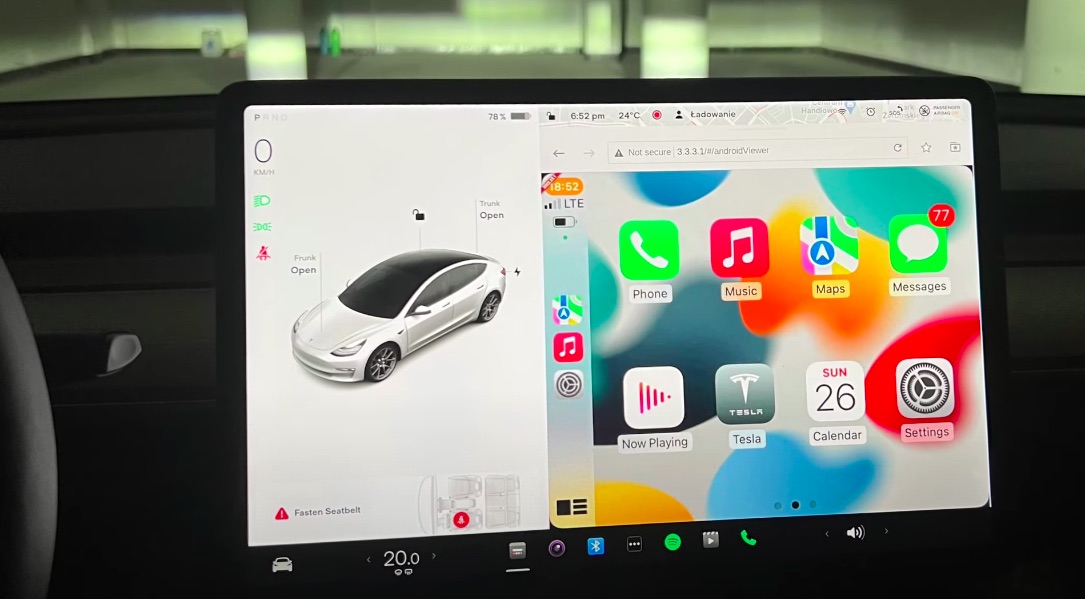
Tesla’s Apple CarPlay ambitions appeared to be dead in the water after a large amount of speculation late last year that the company would add the user interface seemed to cool down after several weeks of reports.
However, it appears that CarPlay might make its way to Tesla vehicles after all, as a recent report seems to indicate that it is still being worked on by software teams for the company.
The real question is whether it is truly needed or if it is just a want by so many owners that Tesla is listening and deciding to proceed with its development.
Back in November, Bloomberg reported that Tesla was in the process of testing Apple CarPlay within its vehicles, which was a major development considering the company had resisted adopting UIs outside of its own for many years.
Nearly one-third of car buyers considered the lack of CarPlay as a deal-breaker when buying their cars, a study from McKinsey & Co. outlined. This could be a driving decision in Tesla’s inability to abandon the development of CarPlay in its vehicles, especially as it lost a major advantage that appealed to consumers last year: the $7,500 EV tax credit.
Tesla owners propose interesting theory about Apple CarPlay and EV tax credit
Although we saw little to no movement on it since the November speculation, Tesla is now reportedly in the process of still developing the user interface. Mark Gurman, a Bloomberg writer with a weekly newsletter, stated that CarPlay is “still in the works” at Tesla and that more concrete information will be available “soon” regarding its development.
While Tesla already has a very capable and widely accepted user interface, CarPlay would still be an advantage, considering many people have used it in their vehicles for years. Just like smartphones, many people get comfortable with an operating system or style and are resistant to using a new one. This could be a big reason for Tesla attempting to get it in their own cars.
Tesla gets updated “Apple CarPlay” hack that can work on new models
For what it’s worth, as a Tesla owner, I don’t particularly see the need for CarPlay, as I have found the in-car system that the company has developed to be superior. However, many people are in love with CarPlay simply because, when it’s in a car that is capable, it is really great.
It holds one distinct advantage over Tesla’s UI in my opinion, and that’s the ability to read and respond to text messages, which is something that is available within a Tesla, but is not as user-friendly.
With that being said, I would still give CarPlay a shot in my Tesla. I didn’t particularly enjoy it in my Bronco Sport, but that was because Ford’s software was a bit laggy with it. If it were as smooth as Tesla’s UI, which I think it would be, it could be a really great addition to the vehicle.
News
Tesla brings closure to Model Y moniker with launch of new trim level
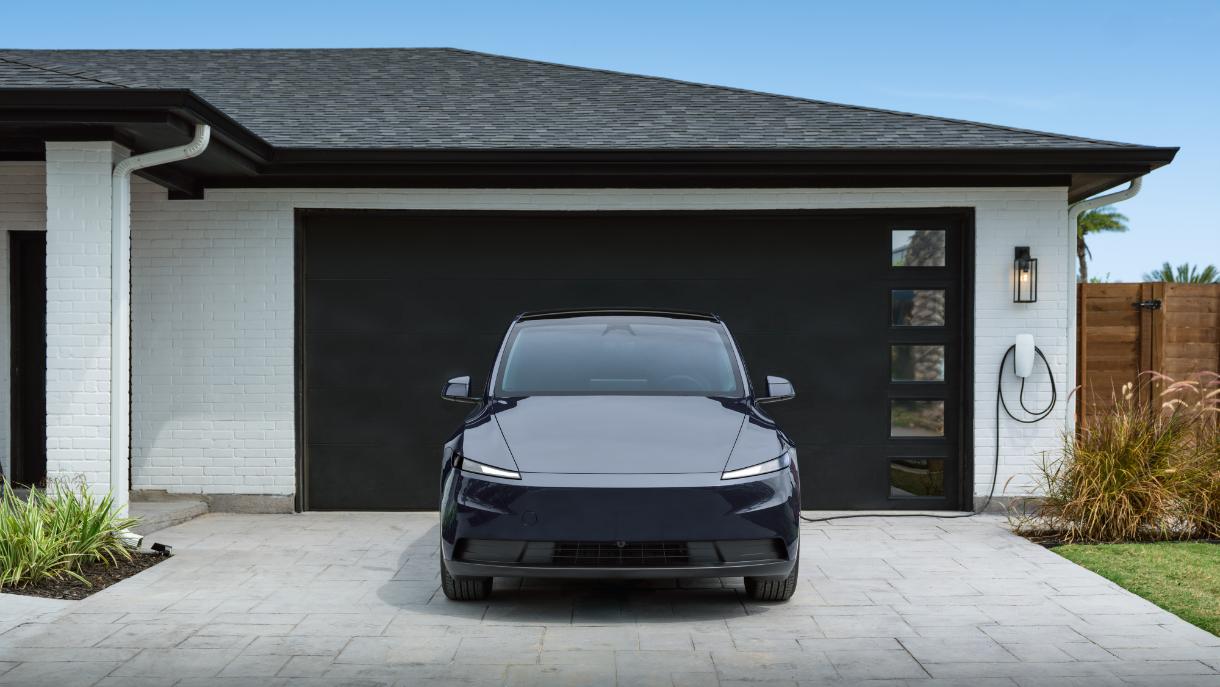
With the launch of a new trim level for the Model Y last night, something almost went unnoticed — the loss of a moniker that Tesla just recently added to a couple of its variants of the all-electric crossover.
Tesla launched the Model Y All-Wheel-Drive last night, competitively priced at $41,990, but void of the luxurious features that are available within the Premium trims.
Upon examination of the car, one thing was missing, and it was noticeable: Tesla dropped the use of the “Standard” moniker to identify its entry-level offerings of the Model Y.
The Standard Model Y vehicles were introduced late last year, primarily to lower the entry price after the U.S. EV tax credit changes were made. Tesla stripped some features like the panoramic glass roof, premium audio, ambient lighting, acoustic-lined glass, and some of the storage.
Last night, it simply switched the configurations away from “Standard” and simply as the Model Y Rear-Wheel-Drive and Model Y All-Wheel-Drive.
There are three plausible reasons for this move, and while it is minor, there must be an answer for why Tesla chose to abandon the name, yet keep the “Premium” in its upper-level offerings.
“Standard” carried a negative connotation in marketing
Words like “Standard” can subtly imply “basic,” “bare-bones,” or “cheap” to consumers, especially when directly contrasted with “Premium” on the configurator or website. Dropping it avoids making the entry-level Model Y feel inferior or low-end, even though it’s designed for affordability.
Tesla likely wanted the base trim to sound neutral and spec-focused (e.g., just “RWD” highlights drivetrain rather than feature level), while “Premium” continues to signal desirable upgrades, encouraging upsells to higher-margin variants.
Simplifying the overall naming structure for less confusion
The initial “Standard vs. Premium” split (plus Performance) created a somewhat clunky hierarchy, especially as Tesla added more variants like Standard Long Range in some markets or the new AWD base.
Removing “Standard” streamlines things to a more straightforward progression (RWD → AWD → Premium RWD/AWD → Performance), making the lineup easier to understand at a glance. This aligns with Tesla’s history of iterative naming tweaks to reduce buyer hesitation.
Elevating brand perception and protecting perceived value
Keeping “Premium” reinforces that the bulk of the Model Y lineup (especially the popular Long Range models) remains a premium product with desirable features like better noise insulation, upgraded interiors, and tech.
Eliminating “Standard” prevents any dilution of the Tesla brand’s upscale image—particularly important in a competitive EV market—while the entry-level variants can quietly exist as accessible “RWD/AWD” options without drawing attention to them being decontented versions.
You can check out the differences between the “Standard” and “Premium” Model Y vehicles below:
@teslarati There are some BIG differences between the Tesla Model Y Standard and Tesla Model Y Premium #tesla #teslamodely ♬ Sia – Xeptemper
Elon Musk
Tesla bull sees odds rising of Tesla merger after Musk confirms SpaceX-xAI deal
Dan Ives of Wedbush Securities wrote on Tuesday that there is a growing chance Tesla could be merged in some form with SpaceX and xAI over the next 12 to 18 months.
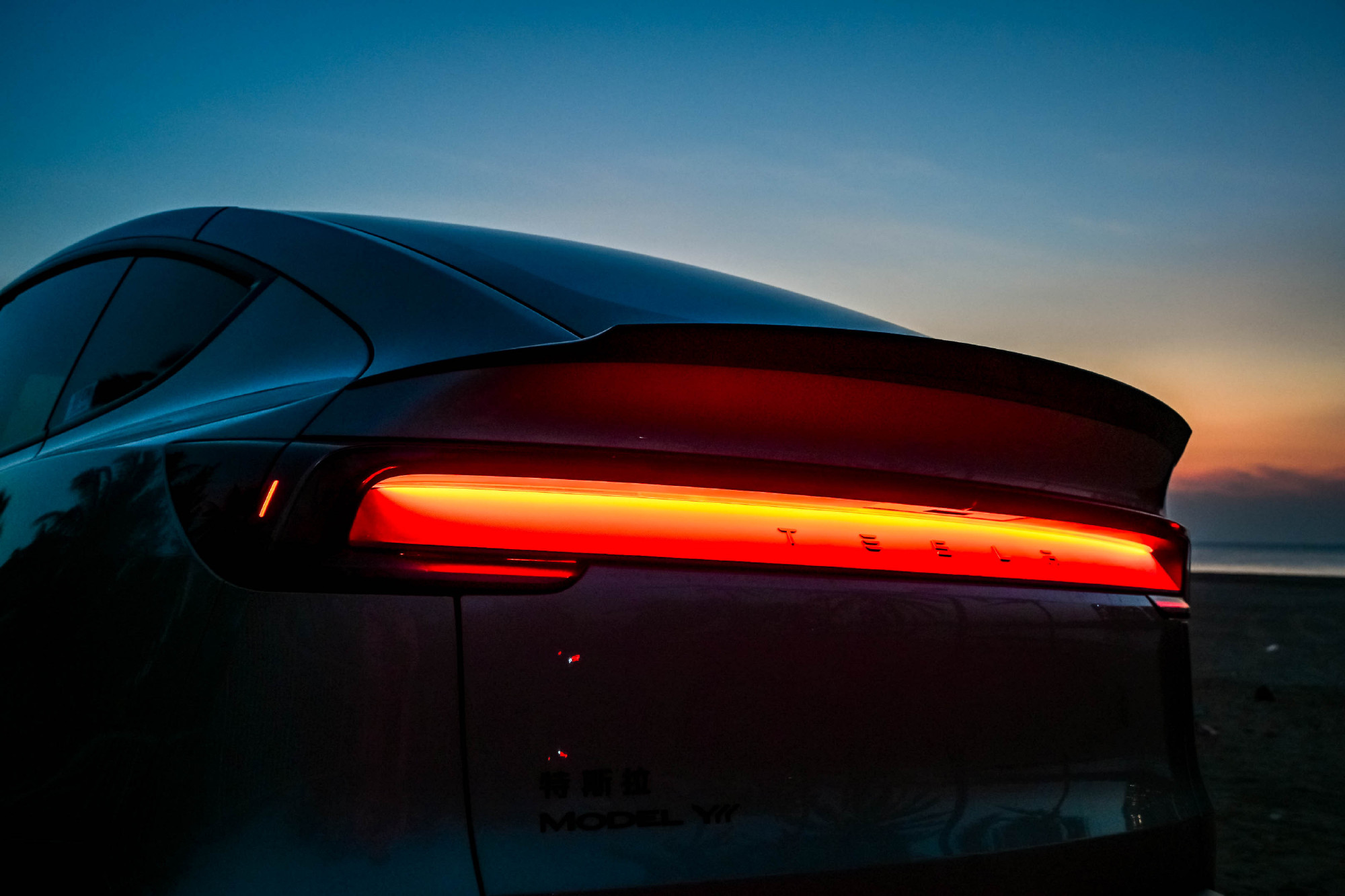
A prominent Tesla (NASDAQ:TSLA) bull has stated that the odds are rising that Tesla could eventually merge with SpaceX and xAI, following Elon Musk’s confirmation that the private space company has combined with his artificial intelligence startup.
Dan Ives of Wedbush Securities wrote on Tuesday that there is a growing chance Tesla could be merged in some form with SpaceX and xAI over the next 12 to 18 months.
“In our view there is a growing chance that Tesla will eventually be merged in some form into SpaceX/xAI over time. The view is this growing AI ecosystem will focus on Space and Earth together…..and Musk will look to combine forces,” Ives wrote in a post on X.
Ives’ comments followed confirmation from Elon Musk late Monday that SpaceX has merged with xAI. Musk stated that the merger creates a vertically integrated platform that combines AI, rockets, satellite internet, communications, and real-time data.
In a post on SpaceX’s official website, Elon Musk added that the combined company is aimed at enabling space-based AI compute, stating that within two to three years, space could become the lowest-cost environment for generating AI processing power. The transaction reportedly values the combined SpaceX-xAI entity at roughly $1.25 trillion.
Tesla, for its part, has already increased its exposure to xAI, announcing a $2 billion investment in the startup last week in its Q4 and FY 2025 update letter.
While merger speculation has intensified, notable complications could emerge if SpaceX/xAI does merge with Tesla, as noted in a report from Investors Business Daily.
SpaceX holds major U.S. government contracts, including with the Department of Defense and NASA, and xAI’s Grok is being used by the U.S. Department of War. Tesla, for its part, maintains extensive operations in China through Gigafactory Shanghai and its Megapack facility.








